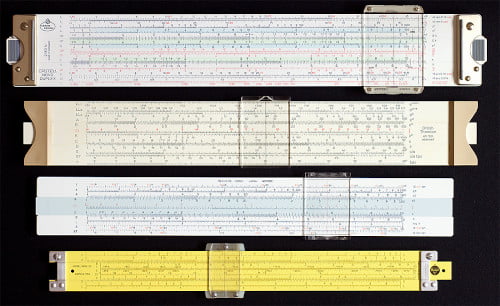Use 2000 Calorie Days to Measure How Much Food Your Family Needs
We want to share with you a simple method for calculating the quantity and cost of the food you and your family may need over a given time frame. And you won’t even need a slide rule to do the math!
We call it “2000 Calorie Days.”
We begin with a common denominator – the 2000 Calorie Day. This represents an average daily intake of calories for an average person. Needless to say, your individual needs may vary; you can easily make any necessary adjustments.
The 2000 Calorie Day is a fixed value: It is not based on “servings” per se, nor is it actually associated with the name of a food storage package you may be considering.
We have calculated the total calories in each food storage package, and divided that total by 2000. The result is the number of days the package will last at a consumption rate of 2000 calories per day.
We display this “Number of 2000 Calorie Days” in the description of our survival food storage kits that are intended to be long-term food storage supplies.
We did not include this info on packages like beverages, vegetables, etc., since it’s unlikely that you’ll eat only side dishes for an extended time.
COMPARING BRANDS
The pricing among our brands is actually very similar, once you get through the confusion of how they figure “number of servings.”
Each company uses a different methodology to determine the name of their packages, and how long their package will last. Let’s see if we can decipher what’s going on.
First, let’s ask the question: “What Is a Serving?”
My answer is: “How Large Is Your Fork?”
A “serving” is not an absolute quantity or amount, until it is defined relative to another value, such as “number of servings per package” or “amount per serving.”
So let’s again ask the question “What Is a Serving?” and answer it in a different fashion.
A “serving” is whatever I say it is. A bag of potato chips may have 24 servings, according to the label. Looking closer, we see that the label also states “serving size: about 7 chips.”
Yeah, right; They think I’m gonna eat 7 chips and be done. I don’t think so, scooter.
So in reality, my bag of chips actually has only 4 servings because I’m gonna eat about 40 chips in a sitting.
Now let’s return to our comparison of food storage brands, and see how they relate to “servings” and “serving sizes.”
Compare Lindon Farms & Legacy Premium
For this example, we’ll use Lindon Farms’ 720 Serving Kit and Legacy Premium’s 360 Serving Package.
LINDON FARMS 720 SERVING KIT
- This kit contains, not surprisingly, 720 servings.
- There are 120,000 Total Calories in the package.
- This package yields 60 2000 Calorie Days.
- It costs $690.00.
- The cost per 2000 Calorie Day is $11.50.
LEGACY PREMIUM 360 SERVING KIT
- As expected, this kit contains 360 servings.
- It contains 133,680 total calories.
- This kit yields 66 2000 Calorie Days.
- It costs $720.00.
- Its cost per 2000 Calorie Day is $10.77.
You can quickly see that these two packages are extremely similar in terms of amount of food, supply duration, and cost.
Yet their names, and the stated number of servings, are vastly different: one says twice the ‘size’ of the other.
You Might Ask “What’s Going On Here?”
The answer is simple: it’s in each of the company’s definition of “servings.”
Lindon Farms bases their calorie counts and durations on twelve servings per day. They figure you’ll eat three meals of four servings each day, thereby consuming 2000 calories.
Whereas Legacy Premium figures, to consume 2000 calories, you’ll eat six servings per day: three meals of two servings each (or two of three, however you choose).
The key is that with either package, you’re getting just about 2000 calories every day, regardless of the number of servings, or portions, or forkfuls.
And with either of these packages, if you consume 2000 calories per day, you’ll have a food storage supply that will last for just about 60 days.
This Comparison Ratio applies to just about all food kits from Lindon Farms & Legacy Premium Foods. You’ll find their quantities and prices are remarkably similar to this example.
You can use this concept of 2000 Calorie Days to compare any number of our Food Storage Packages, and we believe it will help you make the best choices for your family’s emergency and survival food storage needs.
We hope that this information has been helpful, and that you can now make the best choices for your family’s food storage needs.
Be sure to check out our full lines of Emergency Food Storage products.
Please feel free to contact us if you have any questions or need any help or clarification. We want your shopping experience to be the best it can be! We look forward to hearing from you.

